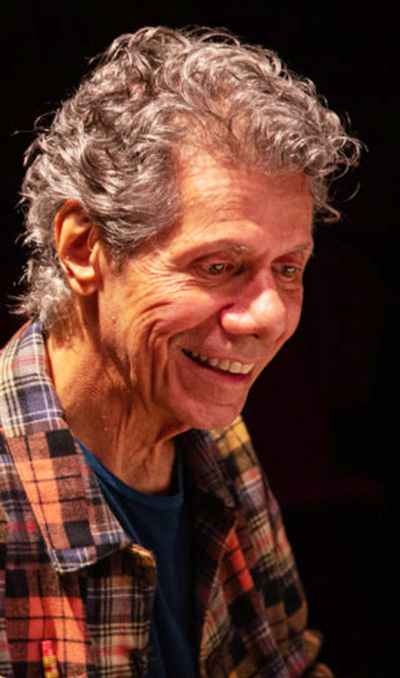Your music vocabulary is pretty diverse and wide-ranging – from Bach to Bartok, bebop to blues and everything in between. How were you able to encompass all these styles in your compositions and make it your own?
It is simply that I have great interest in many different kinds of music, and I like to learn new ways and develop new paths of creation.
Classical and Latin jazz fusion seem to be the foundation of a great deal of what you perform and compose. What about these two genres appeal to you the most?
I love many different kinds of music. But I’m not in love with the “genres.” I like certain artists – it doesn’t matter what kind of music they play. The “genre” is a generality that leads to vagueness.
Would you say some classical pieces are better suited for jazz interpretations than others? If so, which ones?
It’s a matter of the creative musician, not the piece of music. A written piece of music is incomplete as a communication. It needs someone to interpret it and communicate it to the listeners.
Can you tell me your father’s influence on you as a musician? Was listening to him play one of your formative musical experiences?
My father Armando was a great man and a fine musician. Most of all my father Armando and my mother Anna were the best of parents because they let me develop my own mind and have my own freedom to think and to create what I love. They encouraged me in that.
Do you remember the first classical and jazz tunes you heard? Any of them that have stayed with you to this day? And why?
The first piece of classical music that made a great impression on me was Bartok’s Concerto for Orchestra. Also, I was very impressed as a young man with Stravinsky’s Rite of Spring and Firebird Suite.
It’s obviously not easy to switch between different genres of music, especially jazz and classical. Can you tell me if there are any differences in your preparation or mindset when you’re playing classical in comparison to jazz?
None – except there are more written notes to prepare with the through-written pieces of classical music.
You’ve been part of so many groups and played alongside so many great musicians. Did you ever feel like you wanted to perhaps stay the course with a band for a longer duration? What have been your most interesting collaborations and why? How do you assimilate the influence of the various members in your band into your work?
I work with my musical partners and learn from them; I’m inspired by them.
You toured and played with Miles Davis pretty much all over the world. Was there any incident or anecdote you remember which you’d like to share?
The first thing Miles said to me on the phone when I asked him about a rehearsal was: “
You also played with him at Fillmore after the release of Bitches Brew. The jazz traditionalists were taken aback by all the avant-garde experimentation but you found a new audience among the rock counter-culture audience. Was that the intention — to liberate the genre for new audiences with innovative new sounds?
Neither Miles nor any of the musicians ever thought in terms of “genres.” We were just trying things that we thought were creative and would communicate well and that we loved.
What did it feel like to be at the
I never thought about that.
You’ve been collaborating with Steve Gadd since the ’70s. How was it playing with him again on Chinese Butterfly?
Steve is a musical miracle.
How has the jazz/musical culture in New York changed since you moved to the city – from the early 60s to now?
Probably a similar way everything else has changed in the ensuing years.
I’m looking forward to experiencing the people of India. I have so much feeling for the musical culture and religious history of India. I know a few great Indian musicians – Zakir Hussain being one of the great ones. All the Indian people I have met have been incredibly polite and friendly. I look forward to touching your earth and your people.
Thank you for
Chick

